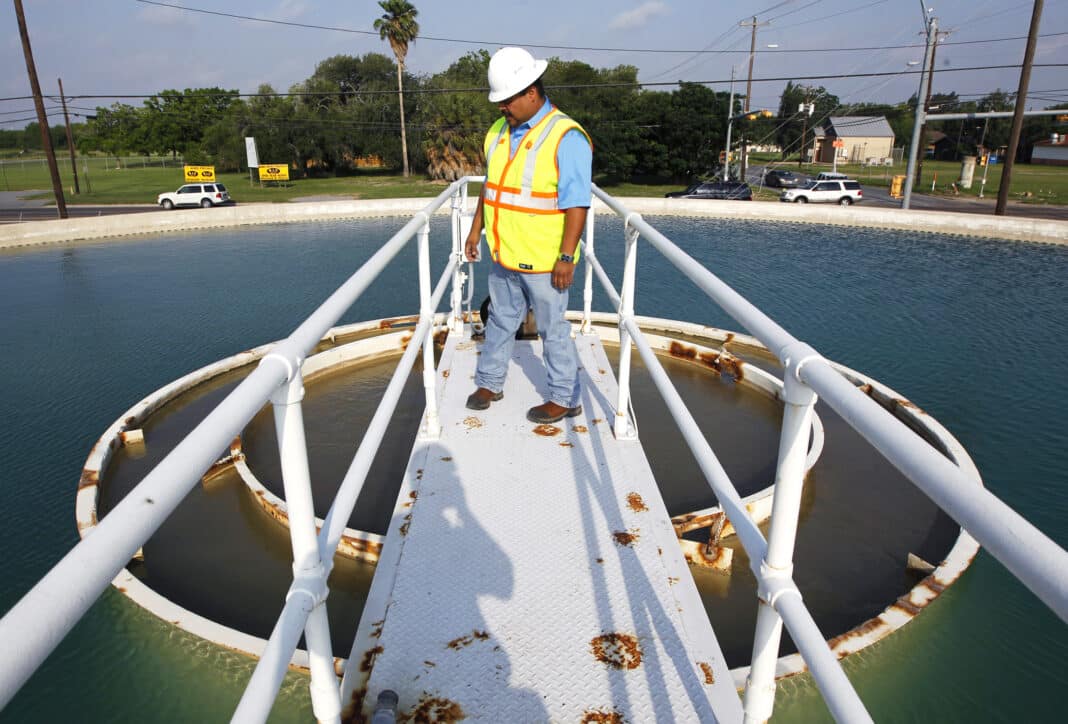|
Only have a minute? Listen instead
Getting your Trinity Audio player ready...
|
McALLEN — The trial against two men accused of defrauding the city of Weslaco out of millions of dollars is still set to begin next month, despite one defendant recently suffering a medical condition that had prosecutors worried he would be unable to participate.
Jury selection in the trial against former Hidalgo County Precinct 1 Commissioner Arturo “A.C.” Cuellar and Weslaco businessman Ricardo “Rick” Quintanilla is expected to begin on June 13, with opening statements to immediately follow.

However, fearing that a change in Quintanilla’s medical status could impact that timeline, federal prosecutors requested an emergency hearing to discuss the matter Tuesday.
“The Government understands that Defendant Quintanilla recently suffered a health event that may impede his ability to participate in trial in this matter should it commence on June 13, 2022,” reads a portion of the government’s sealed motion. The order was handed down by U.S. District Judge Micaela Alvarez granting Tuesday’s hearing.
Prosecutors submitted their request for the emergency hearing on Monday. But between then and Tuesday afternoon, Quintanilla’s defense attorneys had failed to submit any documentation notifying the court of his unnamed medical condition or of their intent to seek a delay in the trial.
Alvarez honed in on that fact as she presided over the hearing via Zoom from her home office while her courtroom at the McAllen federal courthouse remained empty save for a small cadre of court staff.
“As far as the court is concerned, we’re still set for trial on the date I previously gave you,” Alvarez said before questioning why Quintanilla’s attorneys had not officially sought a delay.
“It’s my understanding that we needed to get some medical proof,” replied Jaime Peña, one of two attorneys representing the businessman.
The attorneys had been unable to get that proof from Quintanilla’s doctors until Tuesday morning, Peña further explained.
But Alvarez was nonplussed.
“I do not like these last minute issues coming up,” Alvarez said, adding that the attorney could have nonetheless filed a motion seeking a delay while also informing the court that medical documentation was forthcoming.
“At this point in time, I have no motion for continuance… I will not entertain a late motion… You had the opportunity to do it and you did not take care of it,” Alvarez said.
Alvarez has often opined in open court her penchant for efficiency — both in terms of punctuality and in judicial economy.
The federal judge dislikes having her time wasted and reiterated that point during Tuesday’s brief hearing.
Already, the trial against the two men has seen significant delays since a grand jury handed up a 74-count superseding indictment in April 2019.
First, the sheer scope of the conspiracy and its related evidence — which prosecutors have repeatedly referred to as “voluminous” — led to Alvarez declaring the case “complex.”
The designation allowed the case to circumvent certain timeframes guaranteed by the Speedy Trial Act of 1974 in order to give both sides sufficient time to prepare.
Then, the COVID-19 pandemic repeatedly foiled plans to hold the trial in 2020 and 2021.
The unexpected death of one of the government’s key witnesses in November 2020 also caused setbacks.
Aside from Quintanilla and Cuellar, two other men were also originally named in the indictment, including former Weslaco city commissioner John Cuellar and Daniel J. Garcia, an attorney from Rio Grande City.
In it, the government alleges that the group conspired together in a multimillion dollar scheme involving kickbacks and bribes-for-votes by Weslaco city officials as they approved a no-bid contract to rehabilitate the city’s water and wastewater treatment facilities.
Prosecutors allege the group greased each other’s palms, as well as those of other public officials on the city commission and the Weslaco Economic Development Corporation board in order to push through contract approvals for at least three preferred contractors and engineering firms.
The water treatment facilities needed the repairs — and indeed, the city was in imminent threat of being cited by the Texas Commission on Environmental Quality for the poor state of its water infrastructure — however, the project costs soon spiraled way above comparable work in nearby municipalities.
All that was due to the complex scheme cooked up by the defendants, prosecutors alleged.
Two other men — former Weslaco city commissioner Gerardo “Jerry” Tafolla and former Rio Grande City municipal judge Leonel Lopez Jr. were also implicated in the conspiracy.
They each pleaded guilty to related charges of federal programs bribery just days before the superseding indictment against the four men was unsealed.
A third former city commissioner, David Fox, later pleaded guilty to perjury for lying to the grand jury about accepting a bribe in exchange for his favorable votes on the commission.
Meanwhile, in the years since the indictment was unsealed, John Cuellar changed his plea to guilty and awaits sentencing, as do Tafolla and Fox.
And on Dec. 29, 2021, the charges against Garcia were dismissed in their entirety.
As for Lopez — the former municipal judge who was expected to be the prosecution’s chief witness — he succumbed to cancer on Nov. 14, 2020.
The government’s attempts to secure his testimony via a deathbed deposition failed when Alvarez denied prosecutors’ motion. Lopez died just four days later.




